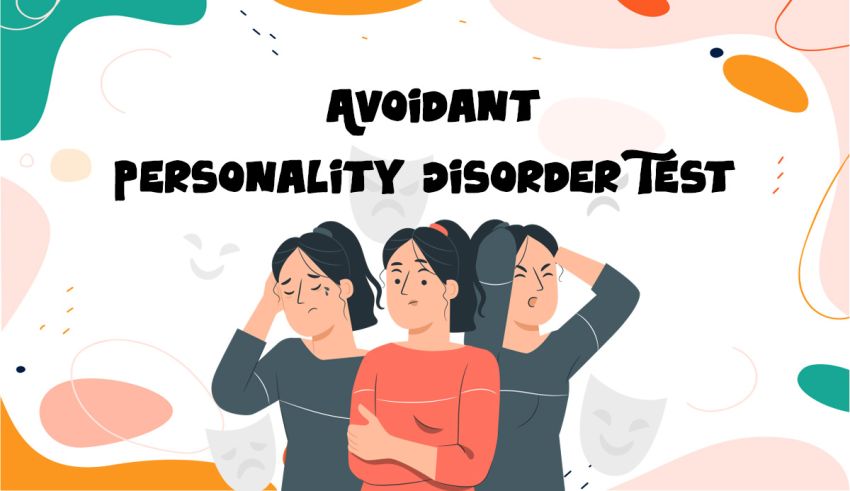AvPD Test Explanation
It consists of inquiries about your social life and your feelings towards particular group encounters. The objective is to determine whether or not you are overly concerned with receiving criticism or rejection. It makes advantage of the most recent DSM-5 recommendations for diagnosing avoidant personality disorder.
“AvPD is a pervasive pattern where a person feels highly inadequate and nervous in a social context,” claims Dr. Ramani Durvasula. Such a person considers themselves to be socially awkward, unfit, and particularly timid in group activities. If you do or do not match the description, the quiz on this page will show you.
Test for Avoidant Personality Disorder with 7 Factors
If you want to know if you have AvPD, you need be aware of the signs. The Diagnostic and Statistical Manual of Mental Disorders, Fifth Edition, states that in order to be diagnosed with avoidant personality disorder, a person must exhibit four or more of the symptoms listed below.
#1: Avoiding social interaction
AvPD is within Cluster C. It denotes that under specific circumstances, the patient exhibits afraid thinking or anxious conduct. Because of this, social activities seem unappealing or frightening to those in this group.
#2: Interacting with Fewer Trusted Individuals
The patient’s fear of rejection is so strong that she prefers to minimize their interactions. They therefore prefer to hang out with friends or family who have shown that they enjoy them.
#3: Exercise Restraint in Close Bonds
People with this illness find it difficult to express themselves verbally or in their thoughts or feelings. They therefore avoid becoming intimate in their relationships because it calls for a certain amount of openness.
#4: Preoccupation with Rejection
Patients with AvPD frequently consider how frightening or unpleasant it would be to be rejected or to feel embarrassed. Such powerful thoughts have the potential to affect the patient’s daily life. Statistics indicate that this group has greater rates of unemployment and illiteracy.
#5: Reticence in Social Situations
Inhibition is one of the most prevalent signs of avoidant personality disorder. The patient lacks spontaneity since they are so self-conscious or humiliated.
#6: Diminishing Oneself
The majority of those who have this illness think of themselves as being weak cognitively or emotionally, or even socially incompetent. People who fall within this category frequently wonder, “What is wrong with me? “
#7: A Fear of Risk or Trying New Things
If you have AvPD, trying something incredibly novel may seem practically impossible. This is so because taking chances and going on adventures often involves being unpredictable and impulsive.
Who Is Prepared for the Test?
The Avoidant Personality Disorder Test requires that you be at least 18 years old to take. This is due to the fact that an early diagnosis is not always accurate. Experts advise waiting until it is possible to evaluate the person’s character. When that occurs, you can determine if they have a Cluster C disorder.
Note that there are no age restrictions on the quiz’s features. Therefore, anyone under the age of 18 may also use it. However, to get the most precise answers, you must be a young adult.
Additional Information Obtained from the AvPD Test
You receive a psychological evaluation of your personality via the questionnaire. In lieu of a simple yes or no, it provides you with a thorough response. The following extra details are included in your results.
Potential for Social Anxiety
AvPD is less of an overactive nervousness and more of a social phobia. The test can diagnose the two illnesses correctly and discriminate between them.
Patients with Cluster C frequently inquire, “Am I depressed?” But such a condition might be irrelevant to a social phobia—or it might be its byproduct. Your test results will help you to comprehend the connection between the two illnesses.
What Does Avoidant Personality Disorder NOT Involve?
Like many other mental illnesses, AvPD is the subject of many myths and misunderstandings. However, you should be aware that the phrases below CANNOT be used synonymously to define this Cluster C disease.
Social Uncomfort
Being socially awkward or introverted is different from having AvPD. Therefore, it is inappropriate to refer to the condition as “social awkwardness.”
Anxiety
Anxious tendencies and anxiety are features of all Cluster C disorders. But once more, it is only a symptom of their true mental state and not the main issue.
What Leads to this Illness?
Scientifically speaking, it is unclear what specifically causes social phobia. However, four factors—childhood experiences, temperament, heredity, and attachment style—are thought to play major roles in its formation.
environment throughout childhood
Traumas like bullying, humiliation, or maltreatment as a child might result in AvPD as an adult. Such incidents undermine a person’s self-worth and confidence, leaving them in the future restricted and unduly self-conscious.
Temperament
Children who are too sensitive or insecure are more likely to develop an avoidant personality disorder. Therefore, it is important to pay attention to a child’s early temperamental cues because they may predict a future mental illness.
As an aside, you can examine your behavioral tendencies by taking our exclusive Temperament Test.
Affixation type
The AvPD exam searches for any indications of uneasy connection. Such a pattern suggests increased risk of developing a mental illness.
Genetics
AvPD is influenced by heredity, according to some psychologists, albeit this is not entirely confirmed. Children who have parents with Cluster C illnesses are more likely to experience comparable issues.
Before taking the AvPD exam, read
Remember that this condition is curable. One of the most effective therapies is CBT, or cognitive behavioral therapy. However, alternative approaches, like group therapy, have emerged in recent years as being quite successful.
The DSM-5 principles are applied in the Avoidant Personality Disorder Test. It does not, however, provide you a clinical diagnosis.
For more personality quizzes check this: Which Squid Game Character Are You.





